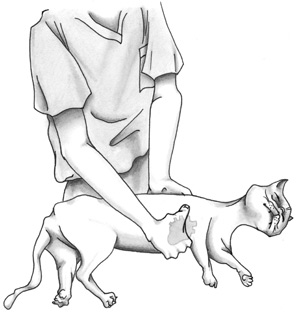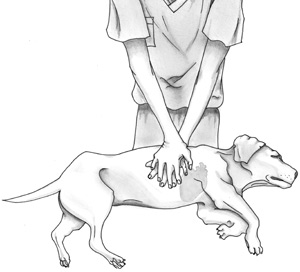New guidelines for pet CPR are published

With no guidelines on how best to perform cardiopulmonary resuscitation on pets, only 6 percent of dogs and cats that suffer cardiac arrests in the hospital survive to go home.
Now the Reassessment Campaign on Veterinary Resuscitation, or RECOVER, offers the first evidence-based recommendations to resuscitate dogs and cats in cardiac arrest. RECOVER aims to standardize treatment of cardiac arrest in pets, ultimately leading to improved outcomes.
It was a collaborative effort of the American College of Veterinary Emergency and Critical Care and the Veterinary Emergency and Critical Care Society, spearheaded by Daniel Fletcher,

After surveying 600 practitioners, the researchers discovered a large amount of variation in how veterinarians do pet CPR.
Boller and Fletcher recruited more than 100 board-certified veterinary specialists from around the world who systematically reviewed more than 1,000 scientific papers related to CPR. The committee ended up with 101 specific clinical guidelines. Each has a rating based on the strength of the evidence backing it.
The researchers offer specific recommended practices as well as guidelines on how clinicians should be trained, how to perform CPR on dogs of different breeds and sizes, what drugs to give when and what follow-up care to provide.
The RECOVER guidelines represent a unique partnership between veterinary experts and physician-scientists who study and treat cardiac arrest in humans, Fletcher said. The initiative exemplifies an effort to provide the same evidence-based care for family pets that physicians employ to save human victims of cardiac arrest, which remains one of the nation's leading killers.

Using the new guidelines, the RECOVER team is developing an Internet-based training curriculum to certify clinicians in veterinary CPR. This certification is being peer-reviewed by the American College of Veterinary Emergency and Critical Care, much as the training materials for human CPR are accredited by the American Heart Association. The guidelines will be updated regularly, with the next RECOVER planned for 2017.
Media Contact
Get Cornell news delivered right to your inbox.
Subscribe